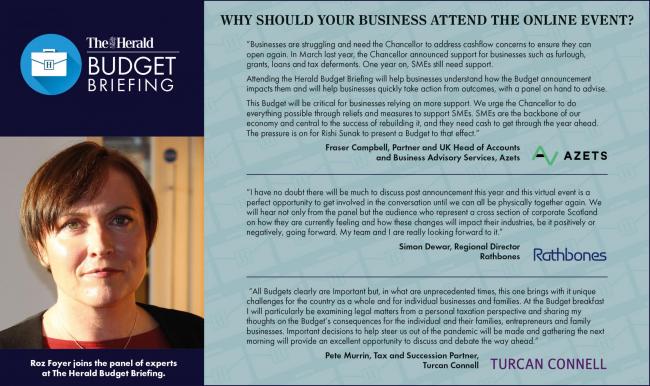
By Roz Foyer
Next month, Rishi Sunak, Chancellor of the Exchequer, will set out his Budget for the coming year. Landing in the middle of the UK’s worst recession in 300 years and at a time of collective trauma with more than 100,000 deaths from coronavirus, it’s a hard task.
However, the evidence is clear – countries that have prioritised public health have better economic performance. Therefore this Budget must tie financial support to public health restrictions aimed at eliminating coronavirus.
The most immediate measure the Chancellor must take, well before his Budget, is to extend the furlough scheme until the end of 2021. This mirrors the support available in other leading economies. The Chancellor was too slow last Autumn, costing tens of thousands of jobs. The same mistake cannot be made again.
Secondly, the Chancellor must fix sick pay. Pay is a public health issue. If workers cannot afford to take sick leave, they may be forced to report to work with Covid symptoms. Sick pay should be raised to £320 a week, and eligibility extended to the two million people who do not qualify because they earn too little.
Thirdly, Universal Credit must be increased to a level people can live off – a minimum of £260 a week – and there must be no reversal on the £20 uplift introduced last year. The five-week wait to access the benefit must be ended immediately.
Further, the Budget must ensure that key workers are properly valued. British billionaires have profited through the pandemic to the tune of £25 billion yet 50 per cent of low-paid workers have suffered income loss.
While Rishi Sunak clapped these workers, he is now suggesting a pay freeze – cutting their wages in real terms. A change of course at Westminster, providing more budget consequentials for the Scottish Government, would also increase the pressure for a better public sector pay rise here in Scotland.
The Chancellor should reward key workers by increasing public sector pay and raising the minimum wage to at least £10 per hour. That would be a real levelling up agenda, boosting spending power in our communities and helping to regrow our economy from the bottom up.
Whole swathes of the economy have been shut down. If we are to avoid the scourge of youth unemployment there is a need for a step-change in public investment to really “build back better” with a plan for jobs.
STUC research shows a £13bn green stimulus package could create more than 140,000 jobs in Scotland.
To build back better we need new ideas on the table – a move to a four-day week could help share work across our economy.
A national subsidy scheme for companies, coupled with the public sector moving to a four-day week, would free up opportunities for unemployed workers while enabling workers to spend more time with their family and loved ones.
Meanwhile, the Scottish
Government is currently setting its budget with its hands tied – awaiting both the publication of the UK Government Budget and unable to borrow to invest. The UK Government must devolve borrowing powers to Scotland.
The ultimate test for this Budget is whether it provides the financial support needed to get through this pandemic. But it will only meet this test if it addresses inequality.
While we are all going through the same storm, we are not all in the same boat. The lesson of the pandemic is the same lesson of the last four decades – inequality kills.
Following the Second World War, the Attlee government built back better to create a welfare state, the NHS, education and housing for all.
If we are to properly honour those whose lives have been lost during this crisis, then we must deliver a recovery that benefits all our people.
Roz Foyer is general secretary of The Scottish Trades Union Congress, and will be part of a panel of experts at The Herald Budget Briefing, taking place on the morning of March 4. To register to attend this free event visit https://newsquestscotlandevents.com/events/budget-briefing-breakfast/ or contact 0141 302 6016 to find out more.

